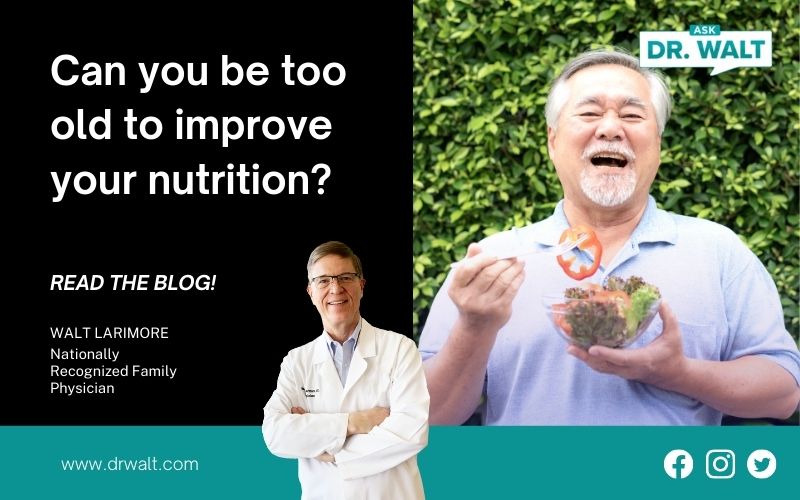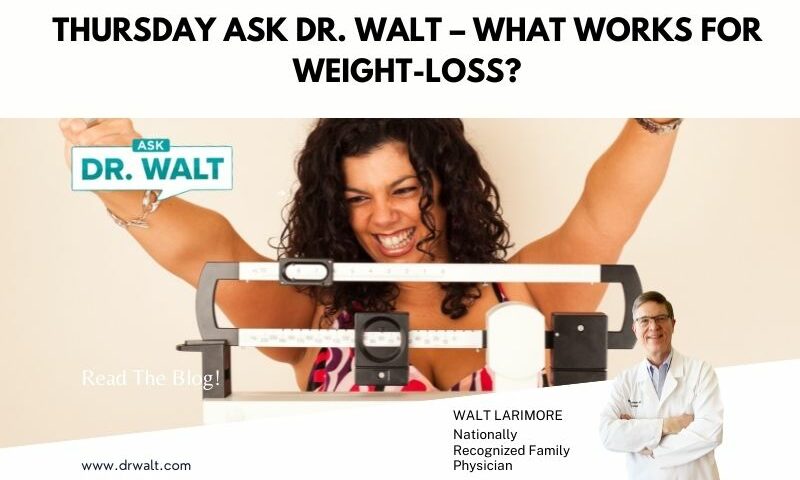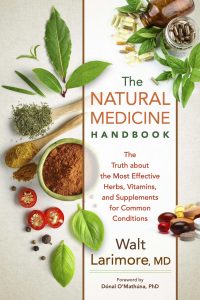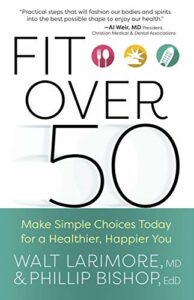
Can you be too old to improve your nutrition?
December 7, 2022
Many pregnant women don’t know that a whooping cough vaccine prevents the disease in their newborns
December 9, 2022Dear Dr. Walt, in your last two video blog Q&As, you’ve said why you do not recommend weight-loss supplements. So, what do you recommend? — Advice Sought in Arkansas
Dear Inquirer,
There is no magic bullet, no instantly successful pill or potion. But there are suitable and potentially successful options to consider.
• Healthful nutrition. Every year, the editors of U.S. News and World Report convene a panel of food and health experts to rank diets. They consider “the diet’s ability to help a person lose weight in the short and long term.”
In 2021, the “Best Weight-Loss Diets” were
- Weight Watchers (now WW)
- Vegan, and
- Volumetrics.
In the “Best Fast Weight Loss” category:
- HMR,
- Optavia, and
- Atkins.
In the “Best Commercial Diet Plans”:
- Weight Watchers (now WW)
- Jenny Craig, and
- Nutritarian.
For several years, the Mediterranean Diet ranked No. 1 as the “Best Diet Overall.”
If you can afford it, I’d start with one of the top commercial plans, and then once you’re successful, transition to the Mediterranean Diet or a plant-based nutrition plan. You can read much more about each of the steps below here.
- Movement.
Aim for at least 150 minutes a week. That’s just 30 minutes a day, five days a week. And, your 30 minutes don’t have to be in one session. The CDC says three 10-minute sessions have the same healthful benefits as a single 30-minute session.
According to JAMA, “Even two minutes of any physical activity — taking the stairs, walking the dog, or carrying out the trash — can add up to significant health benefits, such as improved blood pressure, enhanced brain function, reduced risk of cancer, and weight loss.”
- Restful sleep.
As WebMD writes, “Catching enough ZZZs is almost as important as exercise or nutrition if you’re looking to lose weight. Studies link a lack of sleep to feeling hungrier and gaining weight. When you skimp on shut-eye, you’re more likely to eat bigger portions, crave high-carb foods, and choose fatty snacks. Plus, chances are you’ll be too tired to work out — a double whammy.”
- Blond psyllium.
This is the one natural medicine with some potential for weight loss. It’s a water-soluble fiber that has some clinical evidence of reduced body weight and appetite in people who are overweight or obese.
ConsumerLab.com writes, “Psyllium (such as in Metamucil®) may help control hunger although mild to moderate gastrointestinal side effects were reported by some. A side benefit of blond psyllium is that it may help lower abnormal levels of cholesterol, blood pressure, and blood sugar while treating constipation.”
Two of the most commercially prominent products are Metamucil® and Konsyl.
- Combining options.
The National Weight Control Registry housed at Brown School of Medicine is following over 10,000 people who have lost at least 30 pounds of weight and kept it off for at least one year.
How did they do it?
Almost 98% modified their food intake, while 94% increased their exercise. About 45% lost weight on their own, while 55% received help from some type of program.
Also, the majority watch less TV than average and engage in moderate-intensity physical activity daily.14 It’s not easy, but it’s doable!
To learn more about your options, consider picking up a copy of my books, The Natural Medicines Handbook: The Truth about the Most Effective Herbs, Vitamins, and Supplements for Common Conditions
TO LEARN MORE OR ORDER A COPY CLICK HERE
Or, Fit over 50: Make Simple Choices for a Healthier, Happier You
TO LEARN MORE OR ORDER A COPY CLICK HERE.
© Copyright WLL, INC. 2022. This blog provides healthcare tips and advice that you can trust about a wide variety of general health information only and is not intended to be a substitute for professional medical advice, diagnosis, or treatment from your regular physician. If you are concerned about your health, take what you learn from this blog and meet with your personal doctor to discuss your concerns.





